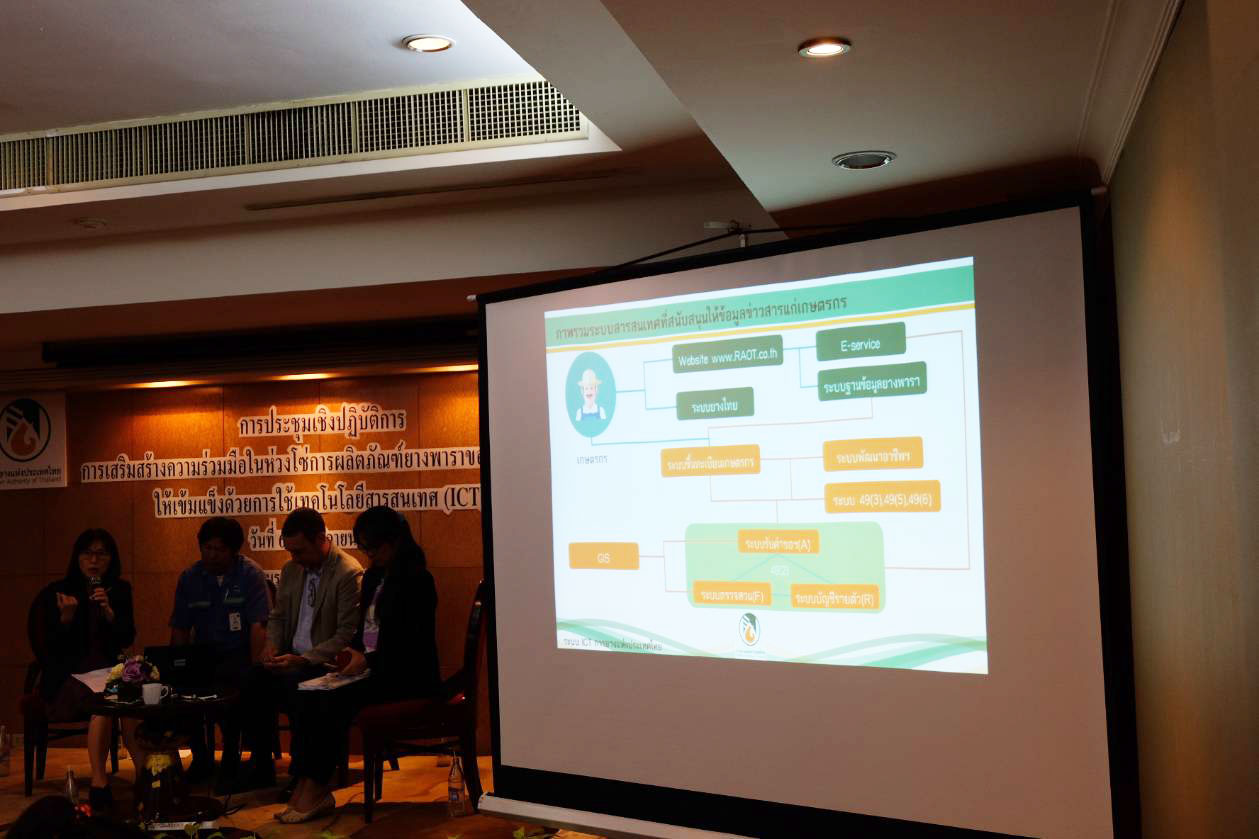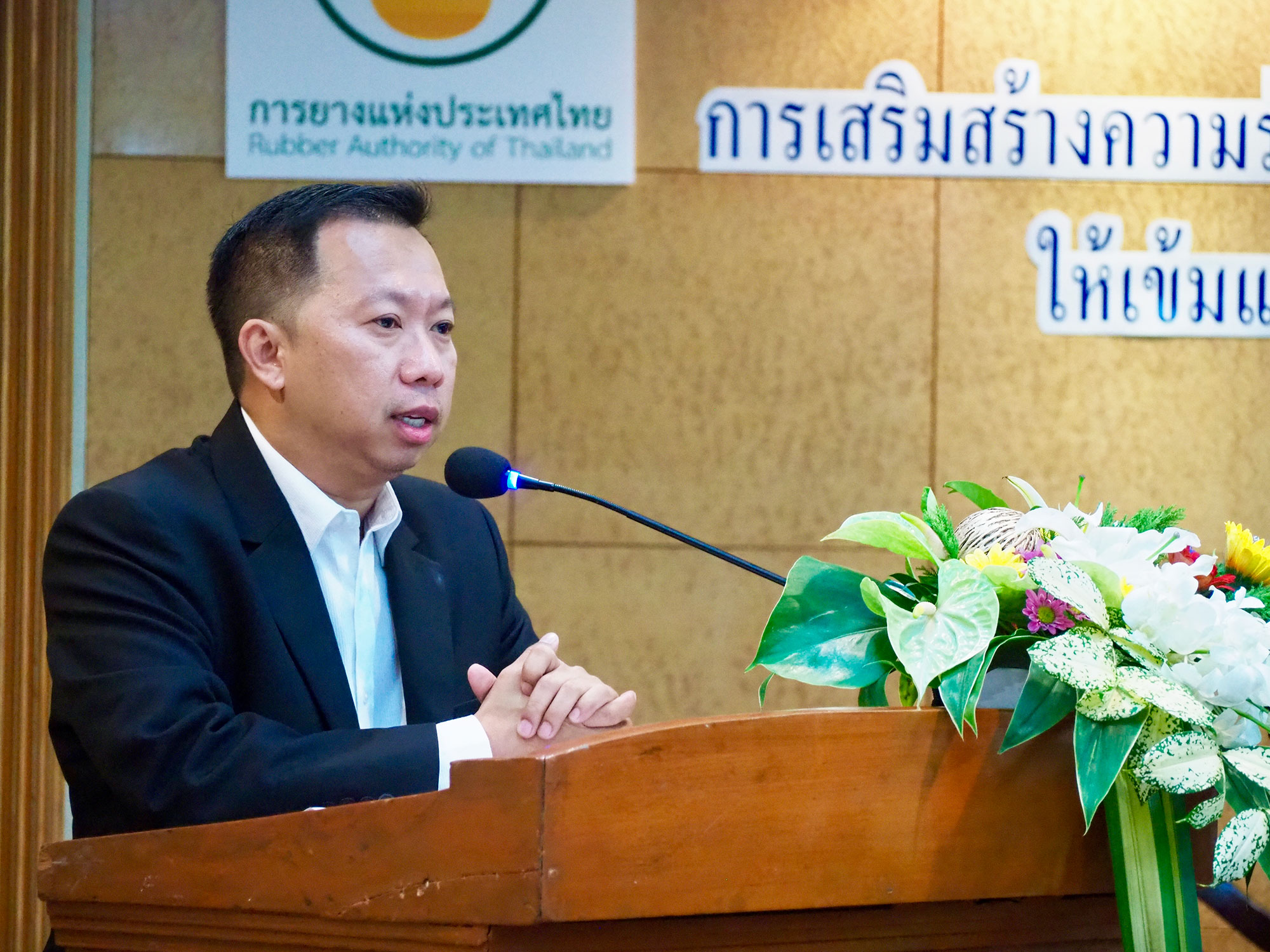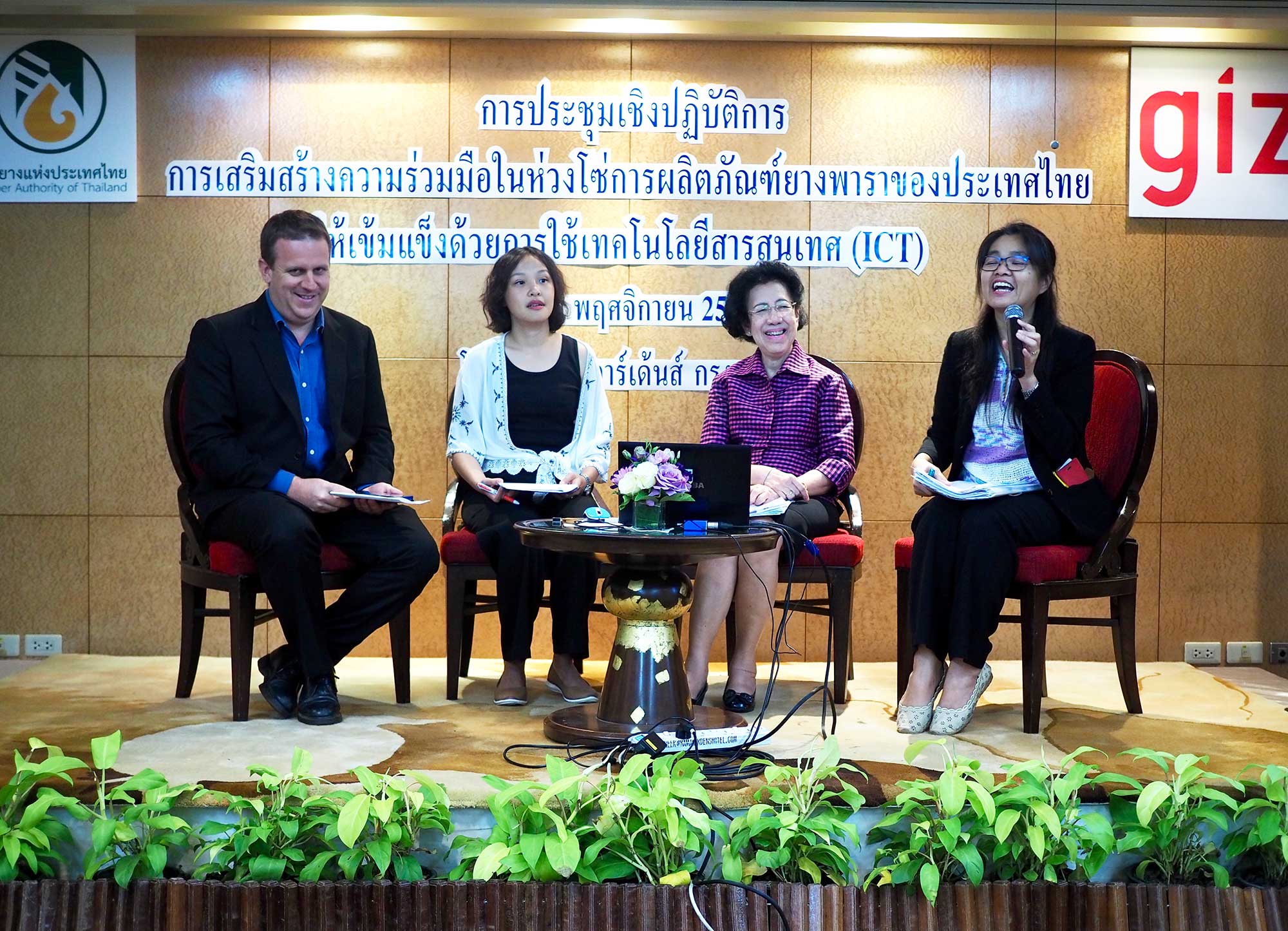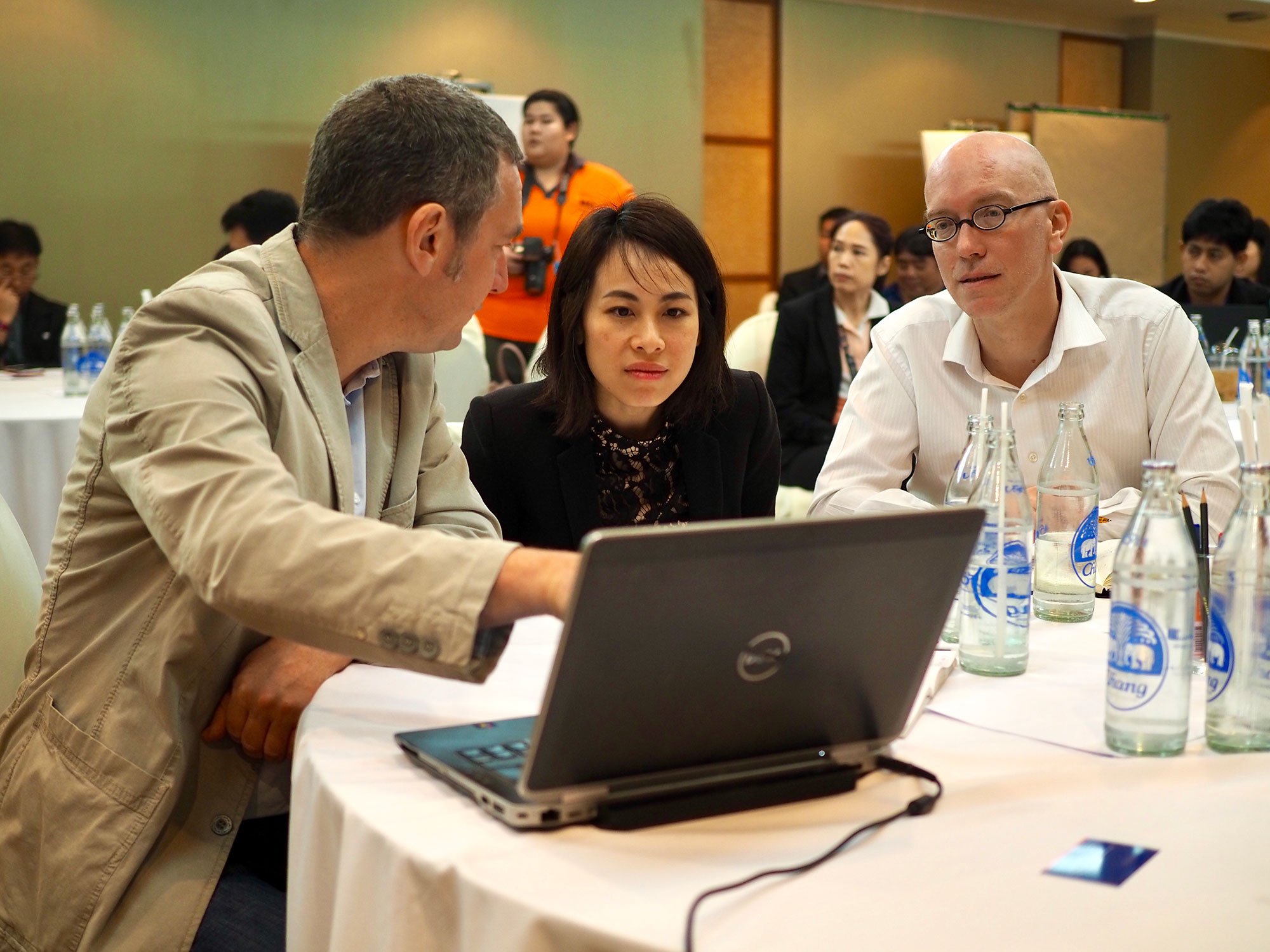
Writer: Agriculture and Food Cluster Team
GIZ Thailand Agriculture and Food, the Rubber Authority of Thailand (RAOT), stakeholders in the rubber supply chains and experts met to discuss improvement of data collection with the use of technology on “Strengthening the rubber supply partnership with the ICT application” at Rama Garden Hotel, Bangkok.
“We need a good data management in order to track where the rubbers are from and how can we later adapt it to the ISO. The most important point is how can we adopt the two standards into our country context,” Nakorn Tangavirapat, Deputy Governor of the RAOT said, referring to the Forest Stewardship Council (FSC) standard and the Programme for the Endorsement of Forest (PEFC), which are sustainable forest managements.
The lack of traceability poses threat to rubber latex supply chain, which is a great concern for international buyers.
Nakorn also added that the RAOT is intended to bring new technology for data collection and standardize sustainability rubber forest management, while management of data collection and land ownership for ensuring the rubber plantation which is not converted from the forests are also on the agenda.
The rubber peasants must produce the rubber without using fertilizer and should be concerned about labor welfare, being environmentally friendly and community management in accordance with the Rubber Authority of Thailand Act B.E. 2558 (2015)



Rubber is one of Thailand’s exports with an annual trade volume of around 4.4 million tons from 3.5 million hectares of rubber plantation in 2017.
The smallholder farmers, however, still lack knowledge and capacity to efficiently manage their plantations and deal with unexpected agricultural risks.
Furthermore, over recent year, rubber prices have suffered from oversupply, which as a result negatively affected income and livelihood of the smallholder farmers, accounted for 1.6 million households.
Therefore, the Information and Communications Technology (ICT) application has been developed to help the smallholder farmers manage the sustainable supply chain.
Prai Sudjit, chief of the RAOT’s Planning and Technical Services sub-division said the existing technology systems need to be merged, improved and standardized to ensure sustainable rubber supply chains and livelihood of small-scale rubber farmers in the long-term.
“There are systems functional to put everything in place, but it is all separate. All technology platforms should be unite,” Prai said.
The RAOT’s regulations should be revised to deal more with social and environmental concerns, he added.
According to him, the implementation is going to take place in the near future.

“To make these ideas happen, we could bring ICT technology to support the farmers and help them on market linkage. GIZ Thailand will support all the rubber farmers, private sectors and government sectors and connect them together under the rubber supply chain; exchanging knowledge, improving better data management and making sustainable rubber production,” said Pouchamarn Wongsanga, Senior Regional Manager of GIZ Thailand.
The GIZ is supporting a framework development for monitoring and traceability of deforestation-free production along with the supply chains to ensure sustainable agricultural commodities without causing any negative impacts to forest and ecosystem.